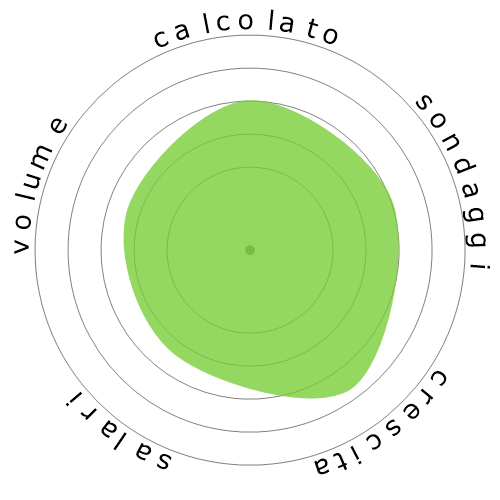Assistenti di Volo
Dove Vorresti Andare Prossimamente?
Oppure, esplora questa professione in maggiore dettaglio...


Cosa mostra questo fiocco di neve?
Cos'è questo?
Valutiamo i lavori utilizzando quattro fattori. Questi sono:
- Possibilità di essere automatizzati
- Crescita del lavoro
- Salari
- Volume di posizioni disponibili
Questi sono alcuni aspetti chiave da considerare quando si cerca un lavoro.
Le persone hanno anche visualizzato
Rischio di automazione calcolato
Rischio Basso (21-40%): Lavori a questo livello hanno un rischio limitato di automazione, in quanto richiedono un mix di competenze tecniche e centrato sull'uomo.
Ulteriori informazioni su cosa sia questo punteggio e su come viene calcolato sono disponibili qui.
Sondaggio degli utenti
I nostri visitatori hanno votato che c'è una bassa probabilità che questa professione sarà automatizzata. Questa valutazione è ulteriormente supportata dal livello di rischio di automazione calcolato, che stima una possibilità di automazione del 38%.
Cosa pensi sia il rischio dell'automazione?
Qual è la probabilità che Assistenti di Volo venga sostituito da robot o intelligenza artificiale nei prossimi 20 anni?
Sentimento
Il seguente grafico viene mostrato dove ci sono abbastanza voti per produrre dati significativi. Visualizza i risultati dei sondaggi degli utenti nel tempo, fornendo un'indicazione chiara delle tendenze di sentimento.
Sentimento nel tempo (annuale)
Crescita
Il numero di offerte di lavoro per 'Flight Attendants' dovrebbe aumentare 9,9% entro il 2033
Occupazione totale e stime delle offerte di lavoro
Le previsioni aggiornate sono previste per 09-2025.
Salari
Nel 2023, il salario annuo mediano per 'Flight Attendants' era di 68.370 $, o 33 $ all'ora.
'Flight Attendants' hanno ricevuto un salario 42,3% superiore al salario mediano nazionale, che si attestava a 48.060 $
Salari nel tempo
Volume
A partire dal 2023 c'erano 126.020 persone impiegate come 'Flight Attendants' negli Stati Uniti.
Questo rappresenta circa il 0,08% della forza lavoro impiegata in tutto il paese
In altre parole, circa 1 su 1 mille persone sono impiegate come 'Flight Attendants'.
Descrizione del lavoro
Monitorare la sicurezza della cabina dell'aeromobile. Fornire servizi ai passeggeri delle compagnie aeree, spiegare le informazioni sulla sicurezza, servire cibo e bevande e rispondere agli incidenti di emergenza.
SOC Code: 53-2031.00
Commenti (30)
Plus, robots can't do such things as CPR or use a first aid kit, for example. So, it's pretty risky.
I have witnessed a decline in the manners and decorum of the passengers traveling. Possibly, the added stress to passengers of airport safety procedures has taken a toll on their nerves. I remember when friends and family could accompany passengers to the gate. Now, the seats are packed in like sardines in a can.
Airline competition made the way for no-frills service and more passengers in smaller seats on airplanes. This has taken a toll on everyone's stress levels. Still, I see friendly FAs who are doing their best to accommodate everyone onboard and assuage those who are already frazzled by the time they take their seats.
A robot may make the dispersion of in-flight commodities easier but it can never take care of all of the emergencies that FAs are trained to handle, the medical emergencies, the duplicate and other seating problems, the myriad of human interactions that FA's handle, unaccompanied children, wheelchair passengers, interaction with cockpit and ground staff, etc., etc. the list goes on, not even considering a major emergency like a hijack incident.
You have vastly underestimated the uber-selective hiring, initial and ongoing training that FAs have. Did you know that they have to take FAA-mandated emergency testing yearly on every airplane which they are qualified to work and pass the test with a 90-100% grade. This includes physical testing in airplane simulators., first aide, resuscitation and cardio procedures etc.
If you see an FA behaving in the unprofessional manner you have described, you should write a letter to the airline about that employee.
Rispondi al commento